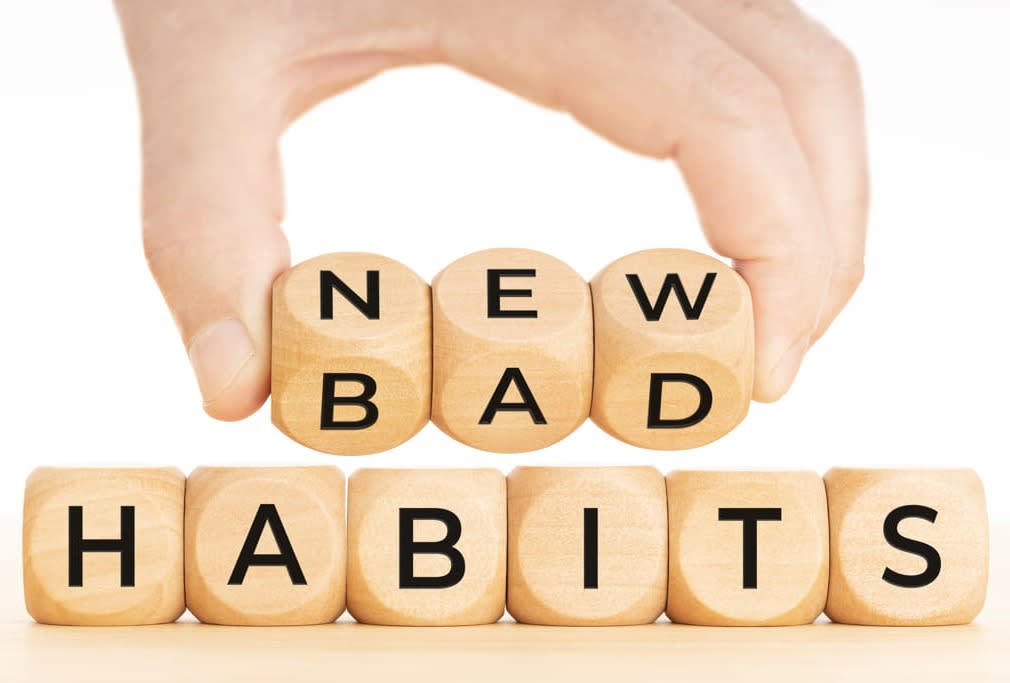
Multi Tasking Skills - Does It Help Create Success Habits?
Aug 13, 2023
By Will Moore
When you think about your set of skills, do you count multitasking as one? Do you think, “Yeah, that’s me? Am I a multitasker”?
The truth is multitasking is almost impossible. You can't build healthy habits by multitasking because your brain wasn't meant for it.
Multitasking is a myth.
But don’t despair; your brain can do many amazing things. You don’t need to multitask to develop good habits. Learn and know about the myth of multitasking and use it to help you.
What Are Multi Tasking Skills?
Multi Tasking skills refer to an individual's ability to manage multiple tasks at once, effectively balancing time and resources to achieve various objectives. This capability is highly valued in many professional and personal settings because it enhances productivity and efficiency. Understanding multi-tasking involves recognizing its components, benefits, and the strategies for optimizing its effectiveness.
Components of Multitasking
Prioritization: Effective multi-tasking begins with the ability to discern which tasks are most urgent and important. Prioritizing tasks ensures that resources are allocated efficiently and that critical deadlines are met.
Organization: Keeping tasks well-organized is essential. This may involve creating schedules, using task management tools, or maintaining clear, orderly workspaces. Organization minimizes the time spent transitioning between tasks and helps in tracking progress.
Time Management: Multi-tasking requires strict management of time. Allocating specific time blocks to tasks and setting deadlines helps in maintaining focus and productivity, preventing tasks from being left incomplete.
Task Switching: This is the ability to switch focus from one task to another quickly and effectively without losing progress. Although often confused with multi-tasking, task switching is actually a component of it, critical in environments where continuous attention to a single task is not feasible.
How Do You Use The Myth of Multitasking to Help You?
Sometimes it’s hard to tell when you are trying to multitask. Often, if you aren’t succeeding at one or more things, it’s probably because you are trying to handle too many tasks simultaneously.
Have you ever created a New Year’s list of resolutions? And how well did that go for you?

The only result of too many New Year’s resolutions is frustration. We quit because it’s impossible to do all these things at once. Your brain can only build one success habit at a time.
Check out this article on Forbes to learn more about how to stick to your New Year’s resolutions.
Remember, you must focus on one core at a time; once you master a success habit, you can move on to the next one.
Listen to the entire podcast episode on - Meditation and Mindfulness in Fitness Routine
Multitasking Can Hinder Your Performance
Multitasking can hinder your task performance because it takes your focus away from a singular task and splits your attention between multiple projects. When you multitask, you're actually just rapidly switching your focus from one task to another. This can lead to mistakes and decreased productivity.
Humans are not very good at multitasking, particularly if the tasks require some level of cognitive processing. For example, you might be able to listen to music while working on a task that doesn't require much thought.
But if you're working on a task that does require cognitive processing, multitasking can lead to errors. It's also important to note that not all tasks can be performed simultaneously. Some tasks need your full attention for you to complete them effectively.

So, while multitasking skill is often touted as a productivity booster, the reality is that it can actually lead to decreased productivity and errors. If you want to boost your productivity, it's best to focus on one task at a time.
What is the Solution?
The key to effectively managing multiple tasks and improving multitasking skills is adopting a mindful and strategic approach to task management.
While multitasking can hinder performance, with the right techniques and habits, you can navigate through multiple responsibilities and complete tasks more efficiently.
1. Creating a comprehensive to-do list
First and foremost, prioritize your tasks by creating a comprehensive to-do list. Identify high-priority tasks and highlight ones that can be grouped together as similar tasks. This way, you can focus on related activities and minimize the mental effort required to switch tasks constantly. Organizing your workload like this allows your brain to adapt and transition smoothly between similar tasks, making multitasking more manageable. I recommend you read more about morning routine checklist, habit journal, and daily routine checklist to find out how you can benefit from these to-do list techniques.
2. Task batching
To further enhance your multitasking abilities, practice "task batching." Task batching involves grouping similar tasks together and dedicating specific time blocks to work on them. For example, allocate one block of time to respond to emails, another for project planning, etc. Doing this allows your brain to stay focused on one type of activity at a time, leading to increased efficiency and reduced errors.
3. Multitasking skills examples from your daily life.
To level up your multitasking skills, consider utilizing multitasking skill examples from your daily life. Look for instances where you naturally multitask and try to replicate that approach in your work environment. For instance, if you can listen to music while doing household chores, explore if background music helps you concentrate on repetitive tasks at work.
Remember, not all tasks can be effectively performed simultaneously. Be mindful of the complexity of the tasks you're handling and whether they require deep cognitive processing. If a task demands your full attention, avoid multitasking and concentrate solely on completing it before moving on to the next.
Task management tools and techniques can be incredibly valuable in aiding your multitasking efforts. Utilize productivity apps or project management platforms to keep track of all the tasks you need to accomplish, set deadlines, and manage progress. These tools can streamline your workflow, making it easier to switch between tasks while staying on top of deadlines. One a side note, utilize these tools to enhance your communication in remote work.
It's important to recognize that the human brain has its limits, and trying to juggle too many tasks at once can overwhelm cognitive processing. Aim to find a perfect balance that allows you to be efficient without sacrificing quality.
How Do You Create Success Habits (and Get Rid of Bad Ones)?
Once a habit is developed, it will not go away easily. It gets locked in your subconscious until you don’t even think about it anymore; you just do it.
“We first make our habits, and then our habits make us.”
- John Dryden
So how do you lock in the good ones? And what do you do to get rid of the bad ones?

Once you understand the power of habits in shaping your life, you can harness this knowledge to create keystone habits and bid farewell to those that no longer serve you. Remember, habits are not formed overnight; they require consistent effort and dedication to develop.
Here are a few things you can do to stay motivated to create success habits:
Take action and make intentions to commit to getting rid of bad habits.
Use apps to keep track of your progress; set little goals and continue to accomplish them so you can move on to bigger achievements. You should also check our momentum habit tracker app if you are looking for an app to track progress.
Take note of the momentum you build with your success habits. Reward yourself for every successful habit developed; you earned it.
Let's explore some more strategies to ensure you level up in life through the power of success habits.
1. Embrace Multitasking Mastery
Mastering the art of multitasking can be a game-changer in today's fast-paced world where we often juggle multiple responsibilities. To improve your multitasking skills, start by identifying similar tasks and grouping them together.
This way, you can efficiently complete tasks that require similar focus or resources, saving valuable time and mental energy. However, remember that effective multitasking skills involve staying focused on each task and not spreading yourself too thin by taking on too many tasks simultaneously.
2. Task Management for Success
Success habits flourish when you can manage tasks effectively.
Employ task management tools and apps to keep track of your progress, set achievable goals, and celebrate your accomplishments, no matter how small.
By breaking down bigger objectives into smaller, manageable steps, you'll stay motivated and build momentum, propelling yourself towards more significant achievements in various areas of life.
3. Rewards and Recognition
Acknowledge and celebrate your successes along the way. Reward yourself for developing and maintaining success habits. Remember, every small step counts, and rewarding yourself reinforces positive behavior.
Whether it's a treat, a relaxing moment, or spending time doing something you love, these rewards will strengthen your commitment to fostering success habits and finding joy in life.
4. Harness the Power of Your Brain
Understanding how the human brain works can be instrumental in creating and breaking habits. When eliminating bad habits or unhelpful habits everyone should quit, find ways to replace them with good ones.
Redirect your focus towards healthier and more productive activities. As you consistently choose these positive behaviors, they become ingrained in your subconscious, and you'll naturally gravitate toward them.
5. Consistency and Commitment
Creating success habits requires consistent effort and dedication. Make a conscious decision to commit to getting rid of bad habits and replacing them with beneficial ones.
Write down your intentions and hold yourself accountable to stay on track. Surround yourself with reminders of your goals and motivations to stay focused. A clear habit journal can help you to track your habits and stay consistent.
6. Continuous Improvement
Building success habits is an ongoing process. As you improve your multitasking skills, learn to handle more than one task effectively and efficiently. Embrace a growth mindset, and view every challenge as an opportunity to refine your habits and level up in life.
Keep pushing yourself to improve, and don't be afraid to seek support or learn from others who have excelled in similar areas. Integrating these strategies into your daily life gradually transform your habits, paving the way for success in various aspects of life.
Remember, you can’t try to create so many habits at once. If you do that, your energy will be split between your habits and your hard work will be wasted. When you focus your energy on one success habit at a time, each habit can become fully developed and locked in. I recommend you to learn more about different techniques like habit stacking and habit loop as these techniques can help in building new habits.
Final Thoughts - Multi Tasking Skills
Multitasking is a myth, and success habits require focus. While your brain can handle multiple tasks, effective multitasking involves strategic task management. Prioritize and group similar tasks, then tackle them one by one to build success habits.
Celebrate your progress, reward yourself, and embrace continuous improvement. By understanding the power of your brain and letting go of the multitasking myth, you'll level up in life and accomplish your goals efficiently and precisely.
